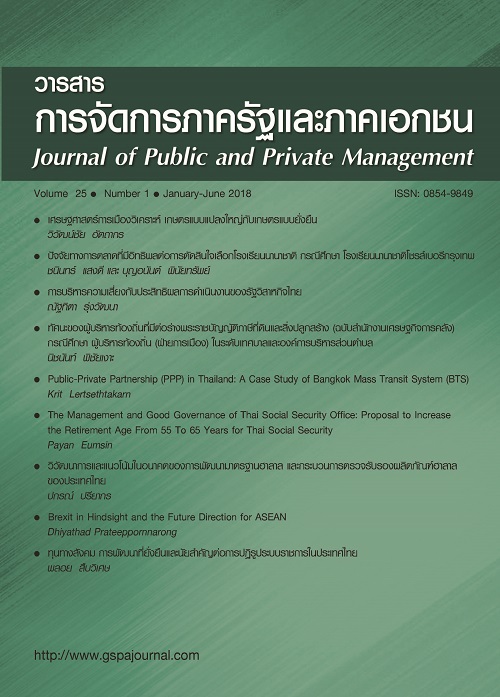Attitudes of Local Administrators on Draft of Land and Building Tax Act (Edition of the Fiscal Policy Office): Case Study of Executive Chiefs (The Political Representation) in Municipality and Sub-District Administrative Organization
Abstract
If the enforcement of the land and building tax law is realized, it should focus on the points as follows:
1) In term of the local government, the executive chiefs (the political representation) agree that taxation of land and buildings will be used as instrument for revenue collection in the local government. However, total revenue of the local government may not increase as much as it should be.
2) In the long term, taxation of land and buildings might lead to effectiveness of land use at local level and reduce land hoarding for commercial purposes. This will result in distribution of land holding and has impact on the increased interest of the taxpayers in local participation indirectly.
3) Regarding to people as taxpayers, the enforcement of taxation of land and buildings at local level will have impacts on them directly. The local administrators must not ignore the needs of affected groups of people.
4) In political dimension, the political consent is another factor that will prioritize the local administrators’ decision-making on the enforcement of taxation because some local administrators are concerned about unavoidable impact on their popularity among the political supporters due to affected taxpayers’ dissatisfaction.


